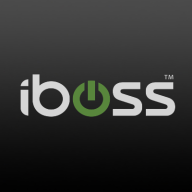


Ping Identity Platform and JumpCloud compete in the identity and access management space. JumpCloud seems to have an edge due to its versatile features, while Ping Identity Platform excels in customer support and competitive pricing.
Features: Ping Identity Platform provides robust multi-factor authentication, single sign-on capabilities, and comprehensive access management. JumpCloud offers an integrated directory platform, flexible user access controls, and device management features.
Room for Improvement: Ping Identity could improve in feature variety and broader device compatibility. Some users find its customization options limited. JumpCloud could enhance its user interface, offer more advanced reporting tools, and improve its tech support response times.
Ease of Deployment and Customer Service: Ping Identity Platform is known for seamless integration and strong technical support. JumpCloud's deployment is simple, with cross-platform capabilities, though Ping's responsive support aids smoother implementation.
Pricing and ROI: Ping Identity Platform offers a lower setup cost, providing attractive ROI through efficient management features. While JumpCloud's initial cost may be higher, it offers long-term value through comprehensive service capabilities and scalability.



iboss offers a comprehensive security platform designed for diverse use cases such as web filtering, data loss protection, corporate proxy services, and URL filtering.
iboss integrates advanced features to address dynamic security needs, leveraging its strength in SASE, ZTNA, AI initiatives, and cloud integration, while ensuring seamless operations for remote work. It excels in historical forensics, malware protection, and flexible cloud deployments. Users benefit from comprehensive traffic scanning, robust malware detection, and PaaS capabilities that reduce hardware management. An intuitive admin console ensures efficient management with content filtering and low false positives. SSL decryption enhances security, while DLP protects data in AI conversations. Deployment is rapid and scalable, allowing effortless integration with emerging technologies.
What features does iboss offer?
What benefits and ROI should users consider?
iboss finds significant application in sectors such as education, where web filtering for K-12 is crucial, and in corporate environments requiring robust proxy services and URL filtering for network security. Its adaptability is essential in scenarios demanding flexible, decentralized security frameworks, particularly for remote work setups.
JumpCloud enables organizations to manage devices, users, and applications across platforms like Windows, Mac, Linux, iOS, and Android. It offers centralized authentication, identity and access management, single sign-on, directory services, security policy enforcement, and cloud service integration.
Organizations leverage JumpCloud for its robust device management, policy management, and seamless integration with applications such as Microsoft 365 and Google Workspace. Its flexibility, stability, scalability, and ease of use make it a strong choice for managing business directories, executing scripts on-demand, synchronizing system access, and implementing mobile device management. Key features include remote access, Windows Out of Box Experience, strong authentication and authorization controls, centralized user and device management, efficient onboarding and offboarding processes, and extensive security and reporting features.
What are the most important features?In specific industries, JumpCloud is utilized to manage a wide array of tasks such as automating administrative functions in healthcare, ensuring secure access to sensitive data in finance, and supporting remote work needs in technology sectors. Its ability to integrate with diverse platforms and provide centralized control makes it suitable for managing complex IT environments.
We monitor all Single Sign-On (SSO) reviews to prevent fraudulent reviews and keep review quality high. We do not post reviews by company employees or direct competitors. We validate each review for authenticity via cross-reference with LinkedIn, and personal follow-up with the reviewer when necessary.